Achieving peak performance isn’t just about training hard – it’s also about how well you recover.
At Optimal Health & Recovery at Inspire in Clonmel, we help athletes of all levels (from runners and rugby players to cyclists and soccer stars) supercharge their performance and recovery with a cutting-edge combination of red/infrared light therapy, hyperbaric oxygen therapy, and PEMF therapy.
These drug-free, science-backed therapies work together to boost endurance, speed up muscle repair, reduce inflammation, and get you back in the game faster. Imagine bouncing back from intense workouts with less soreness, healing injuries in record time, and even reducing your risk of future injuries – all by helping your body repair itself more effectively.
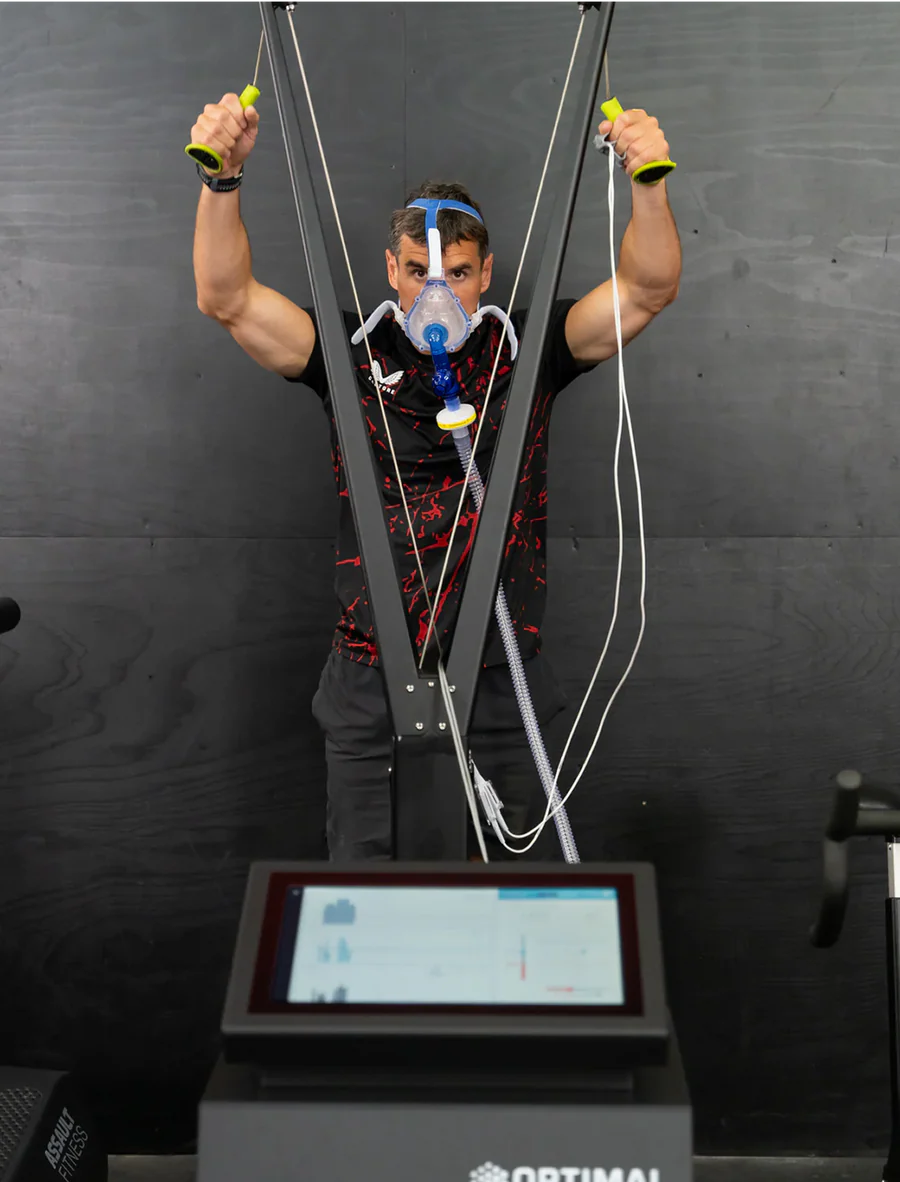
How Infared Therapy Works
Infrared therapy is light your muscles can use. Red and near-infrared light gently passes through your skin into the muscle below. Your cells’ tiny “power stations” (mitochondria) absorb the light and make more usable energy (ATP). With more energy on hand, muscles repair training micro-tears faster, and you feel less sore after hard sessions.
That same light also calms excess inflammation and helps your blood vessels open slightly, so more oxygen and nutrients get in while waste products get out. Think of it as speeding the clean-up crew after a workout—less stiffness, quicker bounce-back.
Infrared nudges tissues into “repair mode.” It supports collagen building and tiny new blood vessel growth, which helps tendons, ligaments, and fascia stay healthy under load. Used before a session, it can “prime” muscles so they feel looser and respond better; used after, it accelerates recovery.
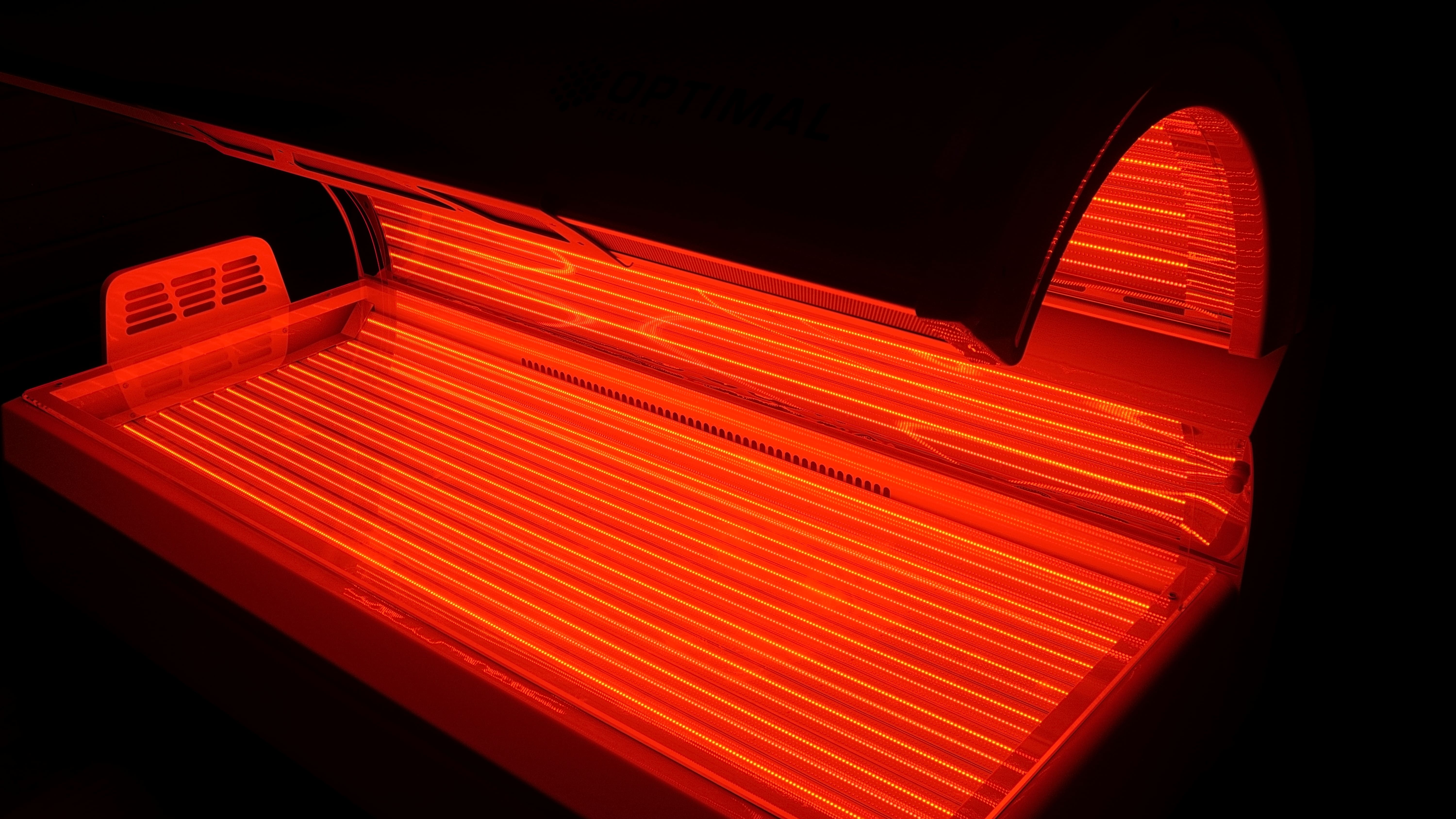
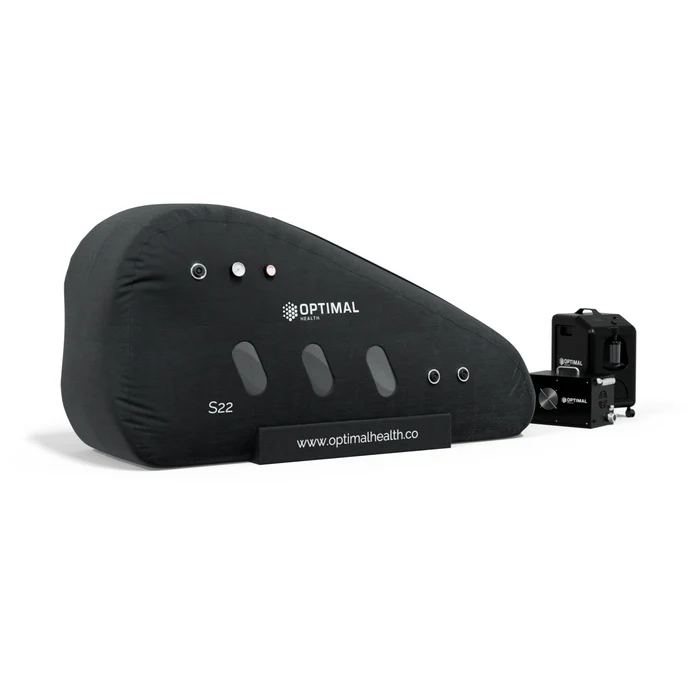
Infrared photobiomodulation (633, 660, 810, 850, 940 nm) delivers targeted red and near-infrared light into muscle and connective tissue, where it’s absorbed by mitochondrial enzymes to boost ATP, trigger pro-repair signaling, and calm exercise-induced inflammation. The result is measurably faster recovery, less soreness, better force output, and more consistent training—without drugs or downtime.
Faster recovery & less soreness
Increases mitochondrial respiration → quicker ATP replenishment after hard sessions.
Dampens oxidative stress and inflammatory mediators that drive DOMS.
Athletes report lower next-day stiffness and faster “ready to train” turnaround.
Strength & power between sessions
Pre-session “pre-conditioning” helps preserve peak torque and bar speed.
Supports faster phosphocreatine recovery for repeated explosive efforts.
Aids excitation–contraction coupling and calcium handling in working muscle.
Endurance & aerobic efficiency
Enhances microcirculation (NO-mediated vasodilation) for better O₂/nutrient delivery.
Promotes mitochondrial biogenesis (e.g., PGC-1α signaling) to improve fatigue resistance.
Lowers perceived exertion in repeated interval or tempo efforts.
Inflammation control & tissue calm
Modulates NF-κB and pro/anti-inflammatory cytokine balance after training.
Reduces edema in stressed joints and muscle compartments.
Shortens the “angry tissue” phase so quality work resumes sooner.
Injury resilience & soft-tissue remodeling
Stimulates collagen synthesis and angiogenesis for tendon/ligament integrity.
Activates satellite cells to support muscle repair after microtears.
Useful adjunct during return-to-play for strains and tendinopathies.
Joint & tendon comfort
633/660 nm improve superficial vascular and synovial environment.
810/850/940 nm penetrate deeper to calm tendon and peri-articular tissues.
Helps reduce irritation around high-load joints (knee, ankle, shoulder).
Neuromuscular readiness & coordination
Supports motor-unit recruitment consistency under fatigue.
Eases protective muscle guarding/spasm without sedation.
Can improve reaction and repeat-sprint quality when used pre-event.
Skin & superficial recovery
Speeds healing of abrasions, blisters, and turf burns.
Improves barrier function and local circulation under pads/tape.
Helps minimize visible scarring over time.

How HBOT works.
HBOT is pressurized oxygen. You relax in a comfy, clear chamber and breathe almost 100% oxygen while the air pressure is gently increased. That extra pressure pushes a lot more oxygen into your blood, so it reaches tired or swollen areas that don’t normally get enough. Oxygen is the body’s main fuel for repair, so this helps muscles, tendons and ligaments heal faster, while swelling and soreness ease. It also helps your body clear out exercise waste products, and over a block of sessions can encourage new tiny blood vessels and stronger tissue.
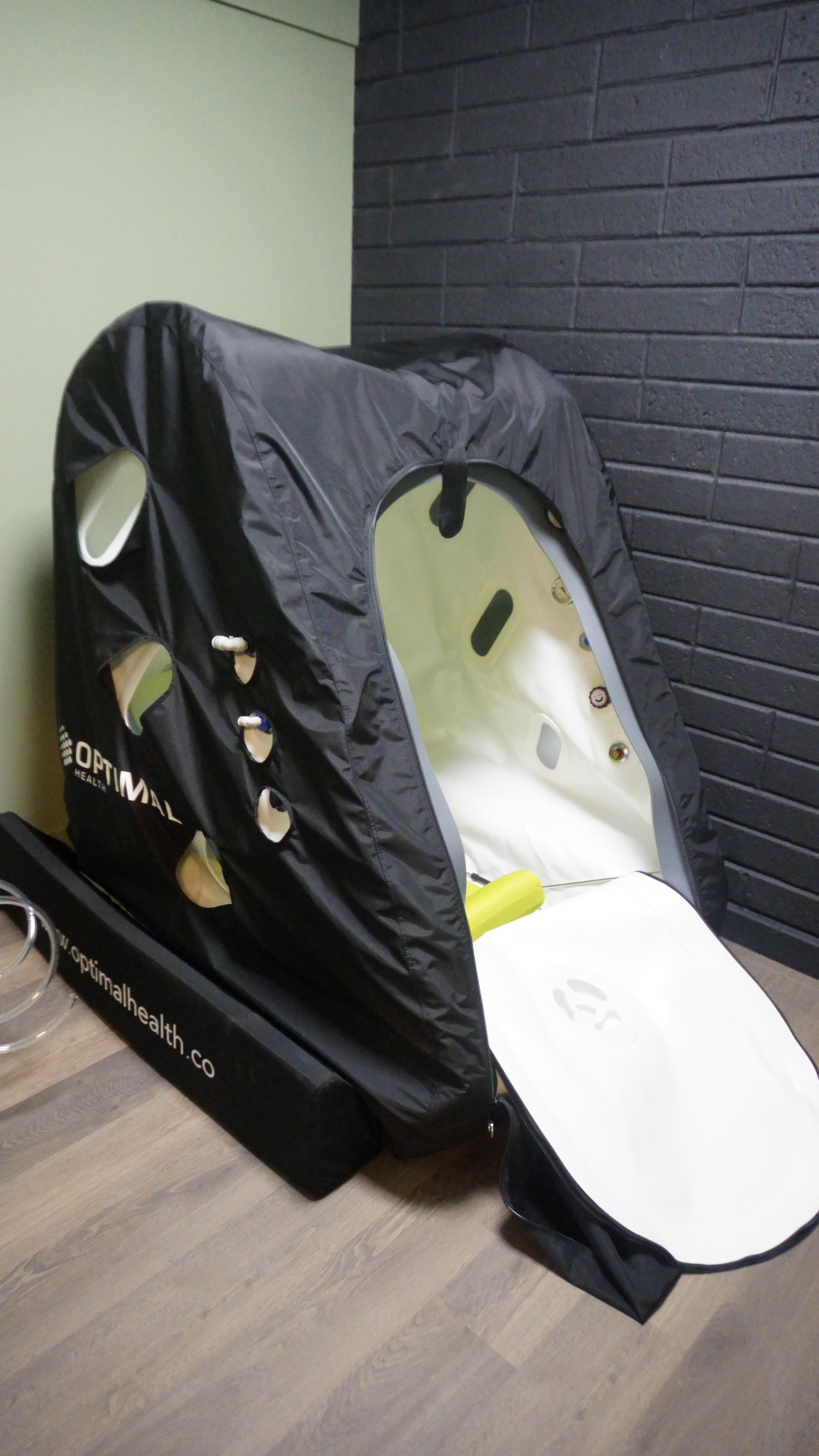

Hyperbaric Oxygen Therapy (HBOT) super-saturates your blood plasma with oxygen, driving O₂ deep into overworked or hypoxic tissues. The result is faster cellular energy production, rapid resolution of swelling and inflammation, and accelerated repair of muscle, tendon, ligament, and bone. Used strategically around training and competition, HBOT helps you recover quicker, feel fresher, and perform at a consistently higher level.
FASTER RECOVERY & LESS SORENESS
Super-oxygenates muscles to restore ATP production and shorten the recovery window after hard sessions.
Helps clear metabolites and oxidative by-products that contribute to DOMS.
Athletes report reduced next-day stiffness and improved “readiness to train” between heavy blocks.
ENHANCED ENDURANCE & AEROBIC POWER
Raises tissue oxygen tension to support mitochondrial efficiency during and after aerobic work.
Stimulates angiogenic signaling (e.g., VEGF), supporting capillary growth over time.
Can improve oxygen kinetics and perceived exertion during repeated efforts.
ACCELERATED HEALING OF SPRAINS & TENDON ISSUES
Increases fibroblast activity and collagen synthesis for faster soft-tissue repair.
Drives oxygen into poorly perfused or swollen areas to normalize healing.
Supports remodeling of tendon/ligament microtears and assists bone recovery alongside standard care.
INFLAMMATION & SWELLING CONTROL
Hyperoxic vasoconstriction reduces edema without compromising oxygen delivery.
Supports healthy blood pressure regulation through improved vascular function
BRAIN & NERVE RESILIENCE
Increases brain oxygenation to support cognitive clarity after heavy loads or travel.
Adjunct to post-concussion care (under medical guidance), helping reduce neuroinflammation.
Many athletes note steadier focus and quicker CNS “bounce-back” between competitions.
IMMUNE SUPPORT
Enhances leukocyte function and host defense, useful during congested schedules and travel.
May shorten downtime after minor respiratory bugs so training consistency is less disrupted.
Supports recovery in high-stress periods when immune resilience is challenged.
SLEEP, STRESS & OVERALL READINESS
Promotes parasympathetic balance post-session, aiding deeper, more restorative sleep.
Helps reduce perceived stress and “wired-but-tired” fatigue after tournaments or two-a-days.
Better sleep + lower inflammation = steadier performance across multi-week blocks.
COMPETITION & TRAVEL STRATEGY
Useful pre-event to top up tissue oxygen and post-event to accelerate repair.
Helps counteract jet lag and cabin-pressure strain on long-haul travel.
Between rounds/heats, speeds turnaround so legs feel lighter and sharper for the next start.
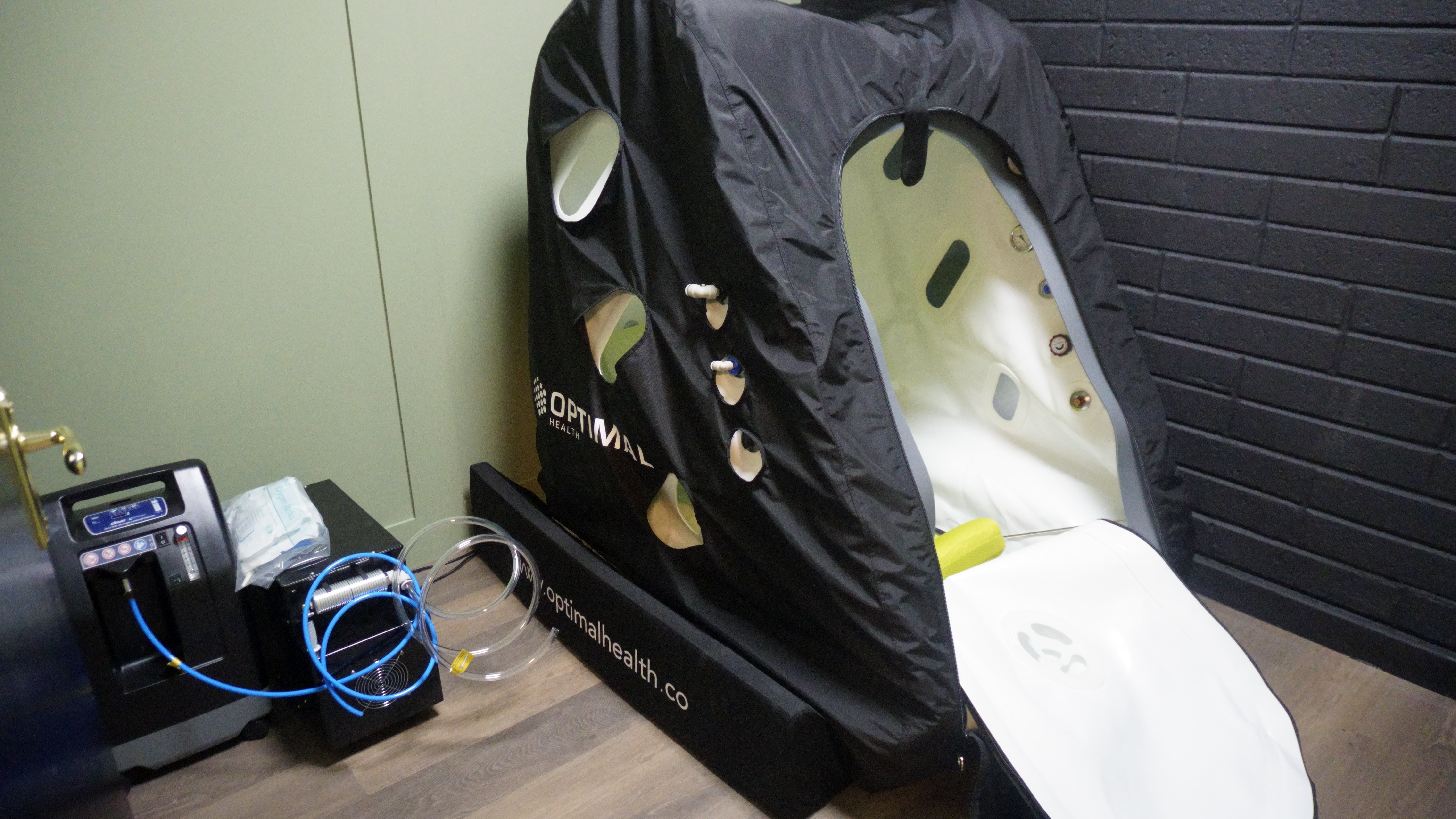
How PEMF works.
PEMF uses gentle, low-frequency magnetic pulses. Those pulses pass through your body and create tiny, safe electrical signals that help cells work better. Think of it as a battery top-up for tissues: it helps muscles recover faster, reduces inflammation and soreness, improves blood and lymph flow, and supports tendon/ligament repair. It also relaxes over-tight muscles and can improve core–pelvic floor coordination for impact sports.

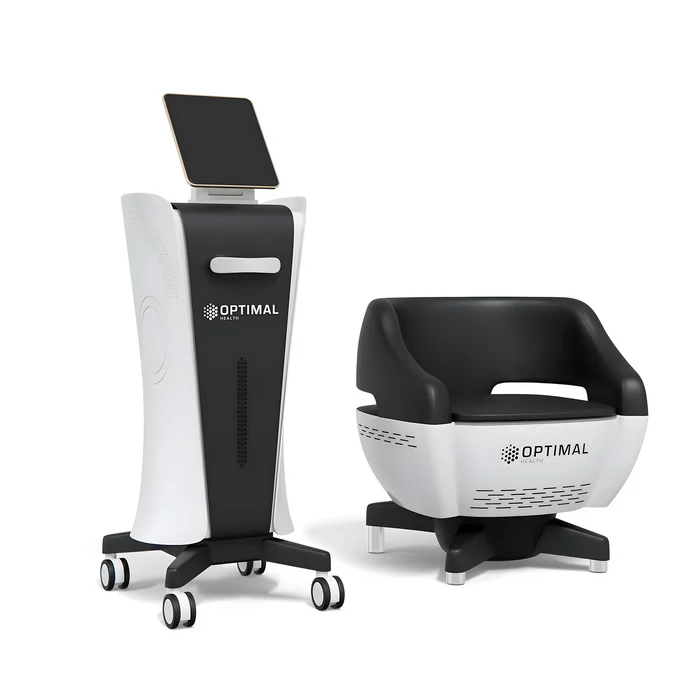
PEMF (pulsed electromagnetic field) therapy delivers low-frequency magnetic pulses that induce microcurrents in tissue, normalizing cell-membrane potential, improving ion flow (especially Ca²⁺), and enhancing microcirculation. The result is faster repair, less inflammation and soreness, and steadier neuromuscular output between sessions—ideal for hard training blocks, tournaments, and return-to-play.
Faster recovery & less soreness
Restores cellular membrane potential to support efficient ATP production and repair.
Improves lymphatic flow and capillary perfusion to clear metabolites that drive DOMS.
Athletes report lighter legs and reduced next-day stiffness after heavy sessions.
Strength & power maintenance
Stabilizes excitation–contraction coupling by optimizing ion channel behavior.
Helps preserve peak torque and bar speed across repeated sets or matches.
Useful between events to reduce muscle guarding and maintain range of motion.
Endurance & aerobic efficiency
Enhances microvascular flow and erythrocyte flexibility for better O₂ delivery.
Supports mitochondrial function under cumulative fatigue, lowering perceived exertion.
Aids recovery of HRV and autonomic balance for more consistent aerobic sessions.
Inflammation control & tissue calm
Down-modulates NF-κB/COX-2 and pro-inflammatory cytokines (e.g., IL-1β, TNF-α).
Reduces edema in overworked muscle compartments and peri-articular tissues.
Shortens the “angry tissue” phase so quality training resumes sooner.
Injury healing & tissue remodeling
Stimulates fibroblasts, chondrocytes, and osteoblasts → collagen synthesis and matrix organization.
Speeds recovery of strains, tendinopathies, bone stress reactions (adjunct to standard care).
Helps remodel scar tissue to restore glide in fascia and tendon sheaths.
Joint & tendon comfort
Improves synovial environment and peri-tendinous circulation for high-load joints.
Eases chronic hotspots (patellar/Achilles/hamstring tendons) between heavy sessions.
Can be targeted locally with applicator coils for stubborn areas.
Neuromuscular readiness & coordination
Normalizes nerve excitability and reduces protective spasm.
Supports motor-unit recruitment consistency during repeat sprints or lifts.
Many athletes feel “looser but switched on” within minutes post-session.
Sleep, stress & overall readiness
Promotes parasympathetic dominance and HRV recovery after late training/competition.
Improves sleep onset/quality, amplifying overnight repair.
Lowers “wired-but-tired” fatigue during congested schedules.
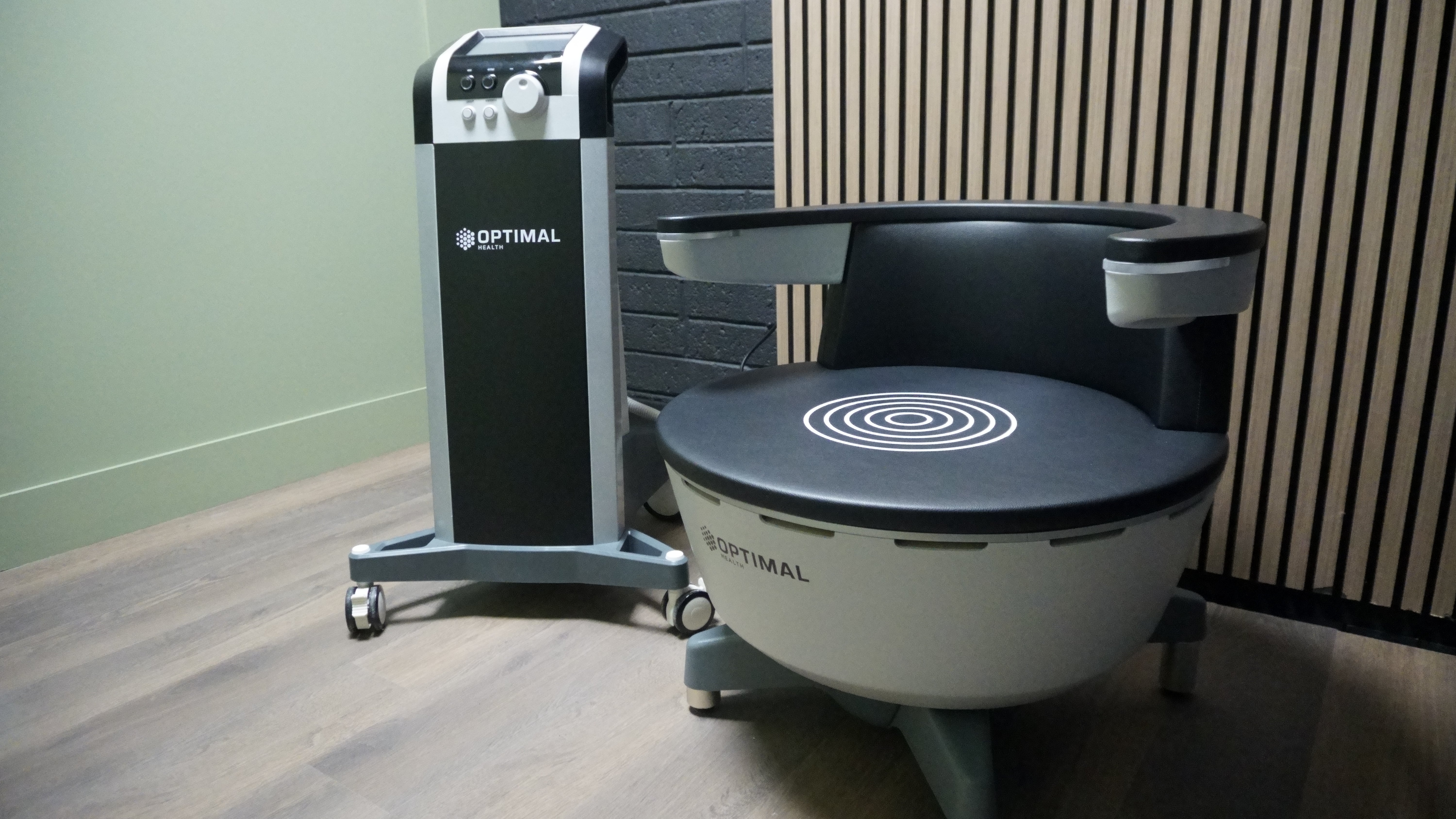
Wondering when these therapies can help you most?
The answer is: throughout your training and recovery cycle. Here are some ideal times and situations to incorporate red light, HBOT, and PEMF into your regimen:
Post-Workout Recovery:
After intense training sessions or competitions, use one or more of the therapies to speed up muscle recovery and reduce next-day soreness. For example, a red light or PEMF session right after a heavy lift day can lessen DOMS (delayed onset muscle soreness) by reducing inflammation and helping muscle fibers repair. HBOT the day after a marathon or match can re-oxygenate tired tissues and flush out lactate, leaving you feeling less fatigued.
Pre-Event Preparation:
Before a big race or game, a short red light therapy session can “pre-charge” your muscles by maximizing cellular energy production, and a PEMF session can loosen tight areas and improve circulation without tiring you out. Arriving at the start line with optimally oxygenated, relaxed muscles can give you a performance edge.
Injury Rehabilitation:
If you’re nursing an injury (from a minor strain to a more serious muscle or ligament tear), integrating all three therapies can accelerate healing and help you come back sooner. HBOT, for instance, is known to promote new blood vessel growth and tissue regeneration in injured, while red light and PEMF reduce pain and trigger repair at the cellular level. Many athletes use HBOT daily in the acute phase of injury to reduce swelling and speed tissue repair, then add PEMF and red light to rebuild strength and flexibility as healing progresses.
High-Intensity Training Cycles
During periods of heavy training or back-to-back competitions, these therapies can be used proactively to keep your body resilient. Short, frequent sessions (for example, a 20-minute PEMF or red light therapy three times a week) can help prevent overuse injuries by minimizing inflammation and keeping cells well-energized and oxygenated. Think of it as giving your body regular tune-ups so small issues don’t escalate.
Travel & Tournaments
Athletes often report feeling run-down or stiff when traveling for games or events. A session in the hyperbaric chamber can combat jet lag and boost your energy by saturating your system with oxygen, and red light therapy can ease muscle tension from long flights or bus rides. Using the therapies during multi-day tournaments can help you recover overnight and be ready for the next round with less fatigue.


